
Very little escapes the watchful eye of Anani Assiongnon.
At his post, outside the Nina Marina Admissions Office, overlooking the Archer Cornfield Courtyard, Anani, a member of Ashesi's campus security team, is usually the first contact visitors to campus make. He checks in guests and keeps a keen eye on activity around campus.
November 30, 2018 was however, slightly different for Anani - he took on some extra work; helping students hold a referendum on the new Social Honour code. Acting as an unofficial polling agent, he was not only busy herding people coming in to vote, but also encouraging his colleague security guards and other staff members, including gardeners, janitors and maintenance staff to participate in the referendum.
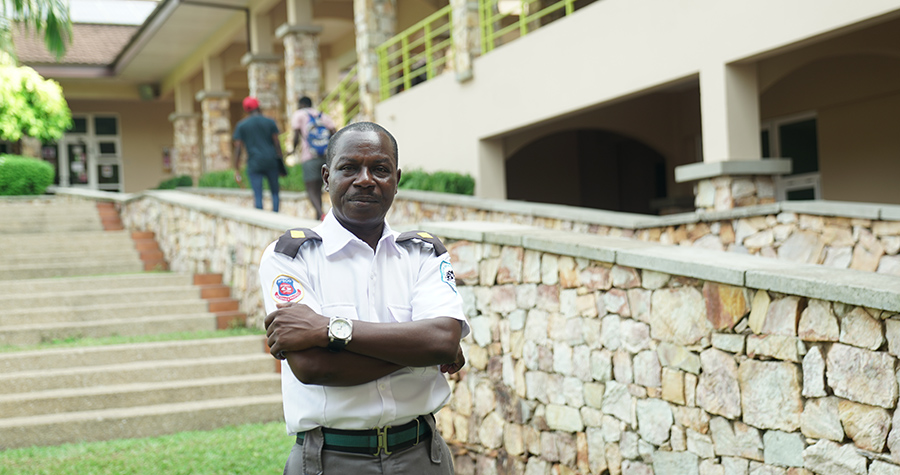
“I was the first person to vote this morning,” he said. “Being part of the security team here, and having been in this industry for long, I have seen the value of a good community like Ashesi. Doing the right thing is important, not only because it makes my work lighter, but because that’s what society should be. So I voted to show my commitment to the mission of doing what is right.”
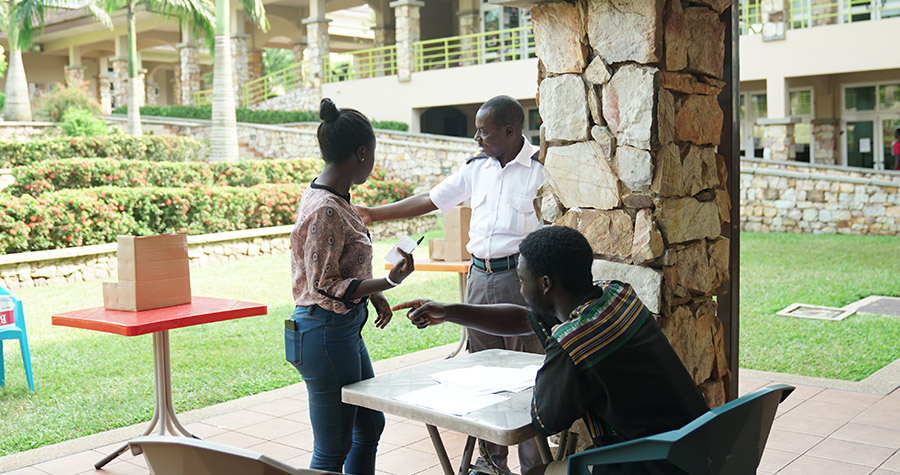
In 2008, Ashesi students voted the Examination Honour Code into force, kicking-off the creation of a high-trust community, where people hold one another responsible for doing the right thing. The code effectively put students in charge of their ethical posture and the reputation of their alma mater. This was a significant step in Ashesi’s mission to educate a new generation of ethical leaders in Africa.
The code, confined to the classroom and to just students, inevitably spawned conversations about the need to have the entire community, including staff, faculty, caterers, gardeners, security guards, janitors and more, bound by a similar code, or an extension of it.
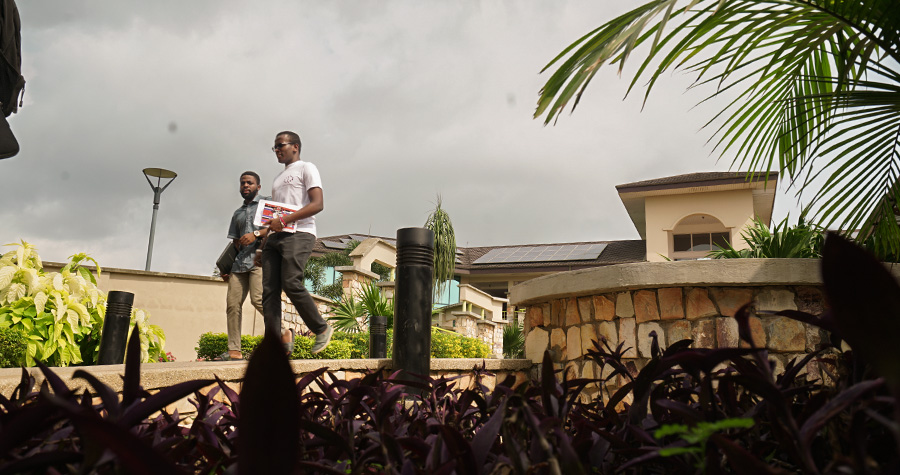
“We should be able to live in harmony in the community; caring for our fellow members and holding one another accountable to their actions,” shared Christopher Zanu, Judicial and Electoral Chairperson (JEC). “If Ashesi is to raise leaders to transform Africa, then I believe this Social Honour code if imbibed and practised, is the moral foundation on which Africa will be transformed.”
This year, the Judicial and Electoral Council, the arm of the student government that oversees issues of ethics and integrity on campus, started the conversation of a social honour code in earnest, eventually culminating in a community-wide decision to implement the code. Under the code, all members of the Ashesi community will now sign on to a new pledge of behaviour; the pledge reads, "as a member of the Ashesi Community, I will act with honesty, integrity and respect for others, and will hold my peers accountable to abide by these principles and by the university’s code of conduct."
“This social honor code is necessary because the university requires certain standards of behavior from its members on and off campus,” said Etonam Dotse ’19, Vice Chairperson of the JEC. “This ensures the security the safety of the community and also ensures that the university remains a center of intellectual and ethical engagement.”
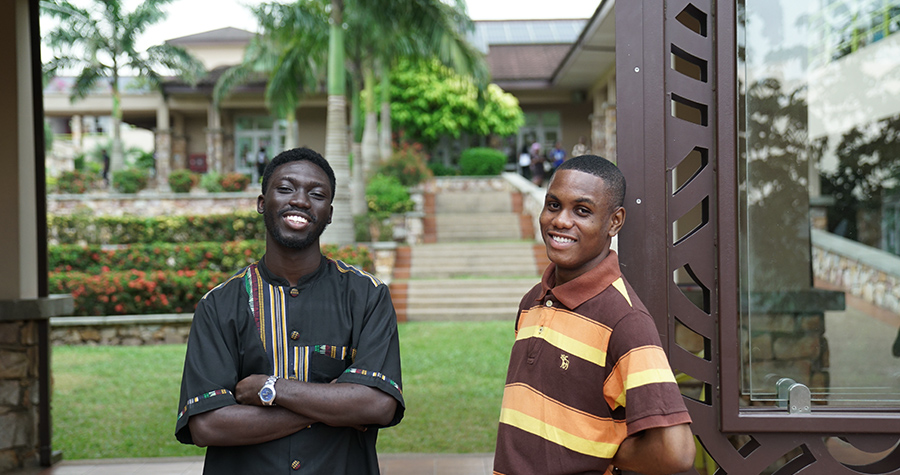 From Left: Christopher Zanu, JEC Chairperson and Etonam Dotse, JEC Vice Chairperson
From Left: Christopher Zanu, JEC Chairperson and Etonam Dotse, JEC Vice ChairpersonFollowing the referendum, 91% (well above the required two-thirds majority) of votes cast supported the implementation of the honour code, yet another milestone in Ashesi's journey.
“This is an exciting chapter in Ashesi's history and each member of this community should be very proud of this feat,” shared Dean of Students, Abdul Mahdi. “Special thanks go to the JEC for having this in their manifesto last year and working very hard on it; and the entire ASC leadership for working diligently on this social honor code.”
In a 2007 TED talk, Ashesi President, Patrick Awuah, shared the value of a student-crafted honour code, and also the possibility of a perfect society. "We cannot achieve perfection,” he said. "But if we reach for it, then we can achieve excellence.”
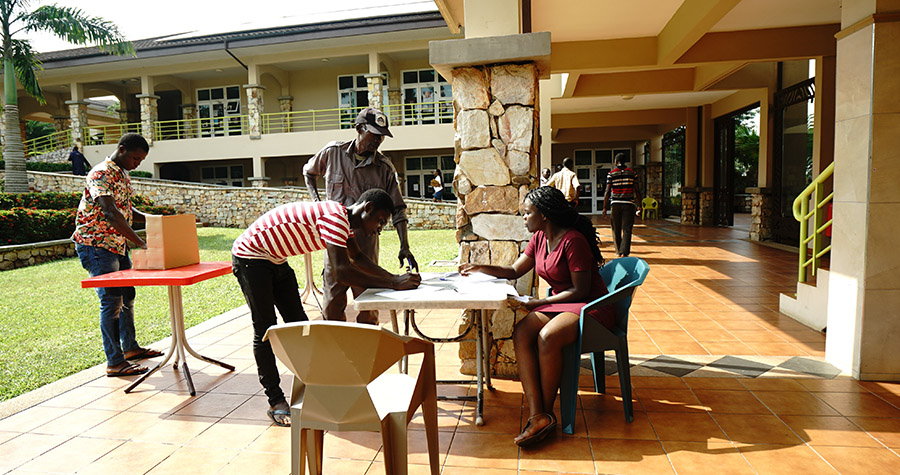
On this particular day, Anani stayed slightly later than after his shift ended, long enough till the results of the referendum were made public. For Anani, and the rest of the society, the prospects of a perfect society may not be so far-reaching.
"This honour code ... it's a good thing," he said.